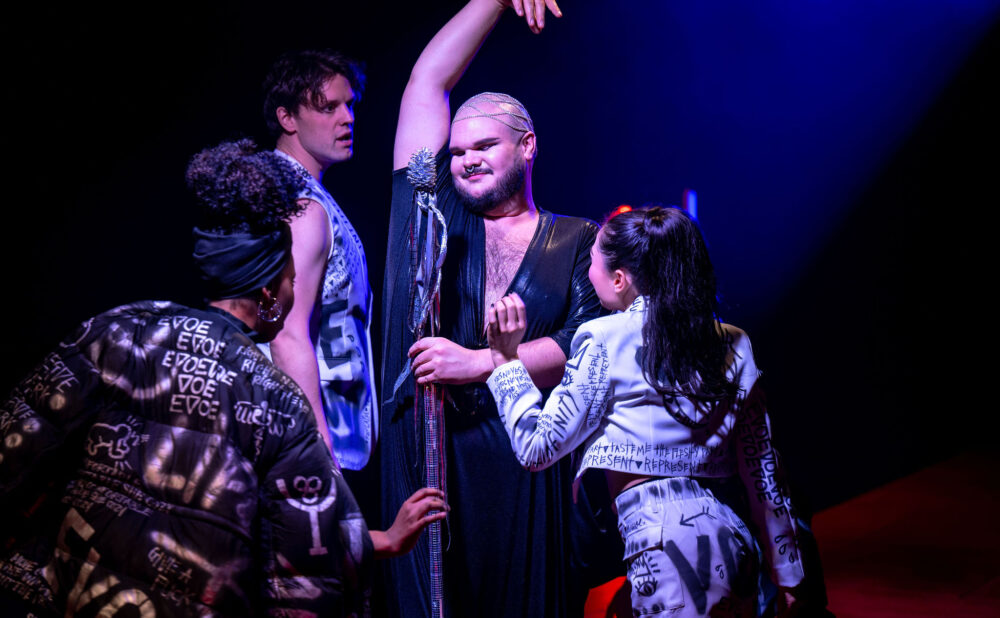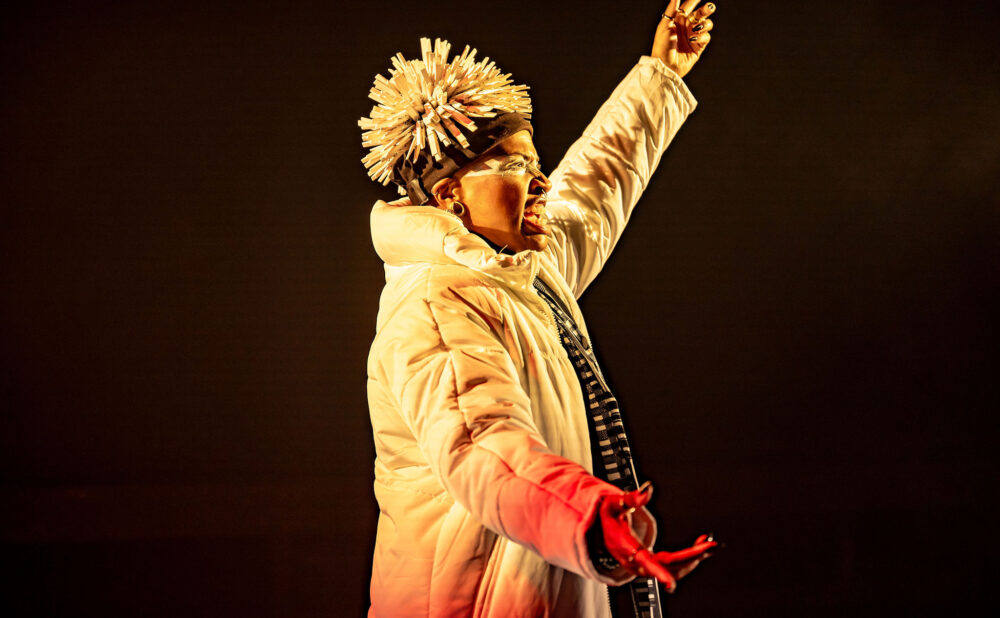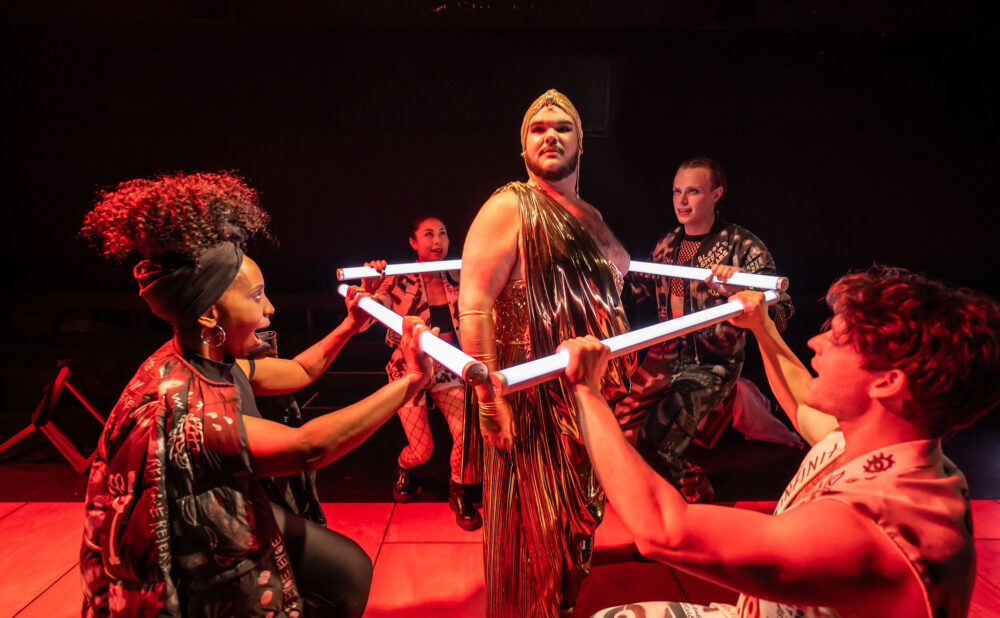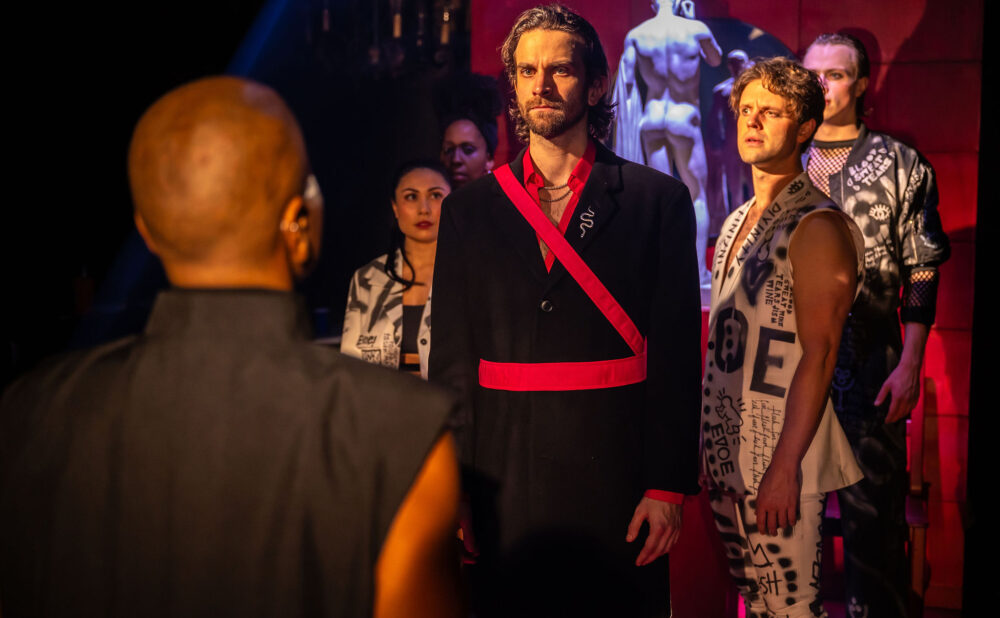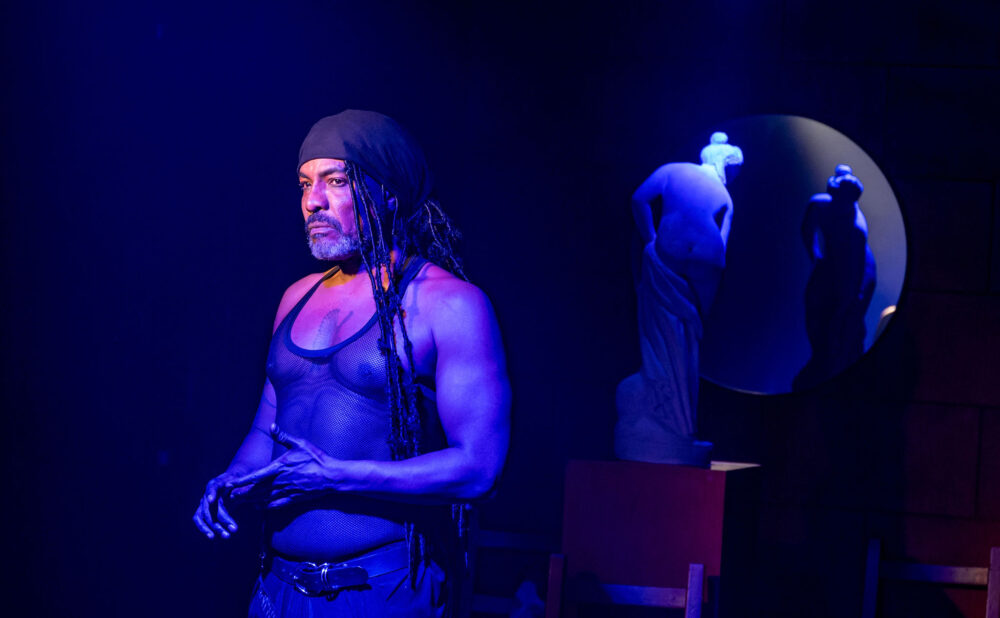Review: Coal Mine’s ‘Dion: A Rock Opera’ harnesses divine power
Greek mythology gets musical mashup modern take on a classic
What: Dion: A Rock Opera
Where: Coal Mine Theatre, 2076 Danforth Ave.
When: Now, until Sun., Mar. 3
Highlight: A sultry, frenzied ensemble worshipping wine, sex and theatre
Rating: NNN (out of 5)
Why you should go: Vivid aesthetic engulfs audience in the Greek world
SILENCE. A breath in. An invocation to the gods.
That is how Coal Mine Theatre’s Dion begins — a silent moment of acknowledgement with the audience as Tiresias, the blind prophet, simply inhales and takes in the room.
Dion is a new show completely sung through rock opera retelling Euripides’ The Bacchae. It follows the return of Pentheus (Allister MacDonald), leader of a city-state, as he finds that the people of his kingdom have disappeared in the hills, worshiping Dion (Jacob MacInnis). Dion or, Dionysus, is a non-binary and fabulous god of wine, sex and theatre. Their followers include Pentheus’s own dear mom, Agave (Carly Street), and his grandfather Cadmus (Allan Louis). The cast is rounded out by the numerous followers depicted by the wonderful chorus (Max Borowski, Saccha Dennis, Kaden Forsberg, Kelsey Verzotti). More on them later.
On each far end of the traverse stage there are velvet red pillars with a marble Greek statue on top: a woman on one side and a man on the other. The action of the show happens in between these two statues: in between the male and the female, in the liminality of gender and time. Alongside the haze and neons from Bonnie Beecher’s beautiful lighting, Scott Penner’s set design solidifies vivid aesthetics that engulf the audience in this Greek world.
This rock opera harnesses divine power with Peter Hinton-Davis’s direction. In a piece about the in-betweens of life, the blocking reflects this with a good use of space, always acutely aware of where the audience is. Especially with the ensemble being on stage the whole time, striking numerous poses even during slower ballads, there is always something to look at to unpack the story.
Performances varied but some definitely achieved god-like status, especially MacInnis portraying the magnificent Dion. They were filled with divine presence and sultry frenzy. The chorus is majestic and well-used by director Hinton-Davis, reminding me much of the angels at Richard II at Stratford last season. They interact with a variety of visually dynamic props, from glowing light beams that pulse on and off to some explosively used red balloons. This is all combined with the beautiful costuming by Penner: they wear black and white clothing with graffiti all over it, spelling out “EVOE” (a Bacchic exclamation of frenzy). Their singing is much like siren calls, and the melody of “Evoe, evoe, evoe” is unlikely to leave my head anytime soon.
With a book by Steven Mayoff and music by Ted Dykstra (Coal Mine’s co-founder), the soundtrack certainly fits the bill of a rock opera with a piano heavy score. There are some really beautiful ballads in this piece, especially Agave’s Poison to Wine sung by Street; it’s always refreshing to see a deep dive into characters that are left in the sidelines in original material. A couple of songs fall flat though, especially an off-beat song about Pentheus’s Twitter presence — which was an odd choice. The tracks begin to blur together at a certain point with not enough distinction between track to track to keep audience engaged on a musical level. Though the neon aesthetics and action on stage try to revive the energy, it feels like they’re doing it despite the music rather than working in tandem.
As the show pushes to the end of the tragic myth of the House of Cadmus, it feels like the piece spends too much time on exposition and meets a rushed end. At a runtime of 70 minutes, I was left wanting a bit more from the end of the production. In such an infamous tale with a bloody end, towards which I thought it was culminating, it didn’t quite have the cathartic punch I was hoping for.
All in all, this is a good show and still worth seeing, if not for its sexy neon aesthetics, then definitely for its certain powerful performances and exquisite direction. And I’ll admit, I’m a sucker for a good bookend finale, as the last actor on stage at the end takes a moment of silence. A breath out. Goodbye gods, see you next time.

